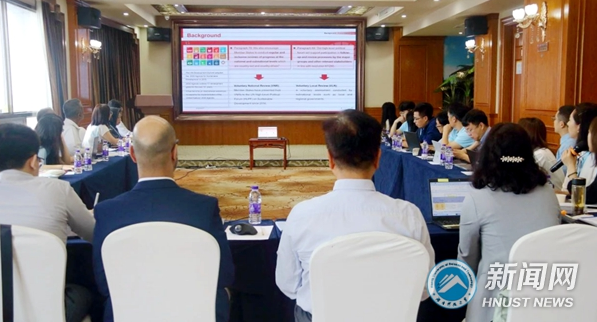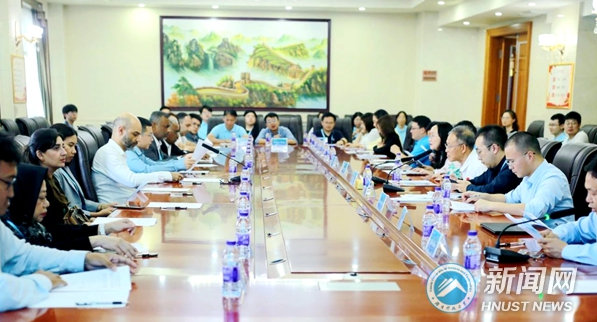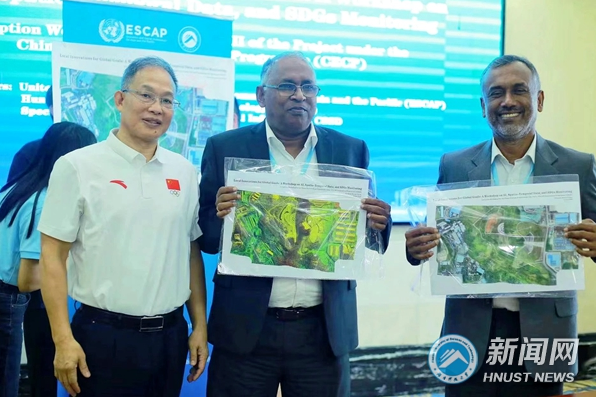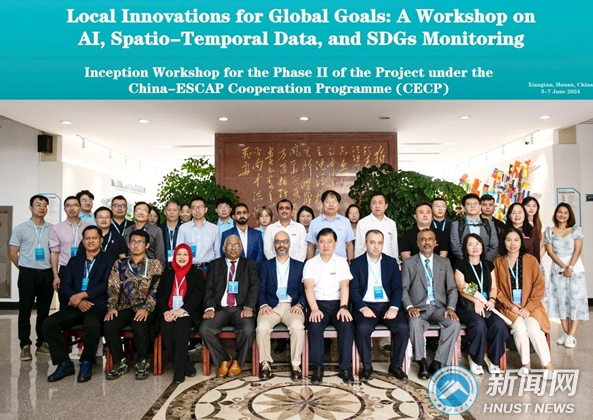From 3-7 June, a training course on Local Innovations for Global Sustainable Development Goals (SDGs): Artificial Intelligence, Spatio-Temporal Data and SDGs Monitoring was held at HNUST. The course attracted a diverse group of trainees from universities and institutions of Indonesia, Pakistan and other countries. Secretary of the Party Committee of HNUST Tang Yayang and Vice President Wang Jin attended the activities.
This training course is one of the important initiatives of the China-UNESCAP Phase II Capacity Building Project, which aims to further improve the capacity of Indonesia and Pakistan in using spatio-temporal data for local SDGs monitoring and decision-making. It also seeks to identify the challenges that need to be addressed in all regions, so as to improve the effectiveness and efficiency of local SDGs monitoring and assessment.
Experts from the United Nations Global Geospatial Knowledge and Innovation Centre (UNGGKIC), the National Geomatics Center of China (NGCC) and various universities conducted in-depth discussions on a number of topics, such as "new methods for monitoring water resources and the water environment" and "the application of new spatial and temporal data in SDGs monitoring".
During the training period, international trainees, experts and scholars also visited Qi Baishi Art Gallery, Metaverse Innovative Research & Development Institute, and National Manganese Mine geological environment governance project site in Xiangtan Manganese Mine. They also learned about how to operate a drone and use it to take photos.
At the closing ceremony, Hamid Mehmood, Manager of Information and Communication Technology and Space-based Technologies for Disaster Risk Reduction Division of ESCAP, delivered a speech. He claimed that the training activity met the goals we have set, and representatives from different countries acquired assessment technology and methods of sustainable development, which left them deeply impressed. Tang Yayang said that HNUST would continue to conduct similar training activities together with the relevant institutes in Asia-Pacific countries based on United Nations regional cooperation. And HNUST looks forward to working with international colleagues to promote sustainable development in the Asia-Pacific region, driving economic, social, and environmental progress while contributing to global governance and a shared global future.
Co-hosted by ESCAP, HNUST, and the Chinese Society for Sustainable Development, the activity facilitated cross-border knowledge exchange and laid the groundwork for capacity-building in Asia-Pacific region geospatial information application agencies.





(Translated by XIE Wenjie and HU Zhuojun)